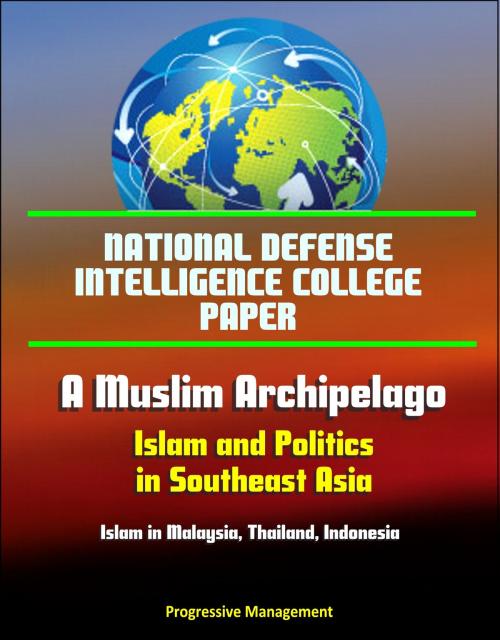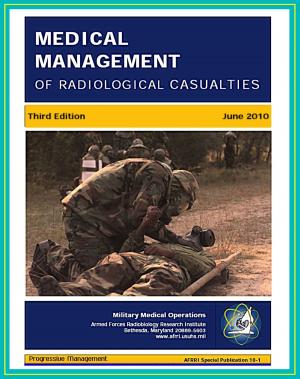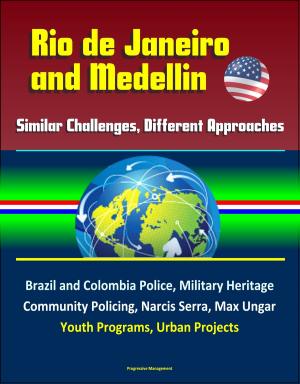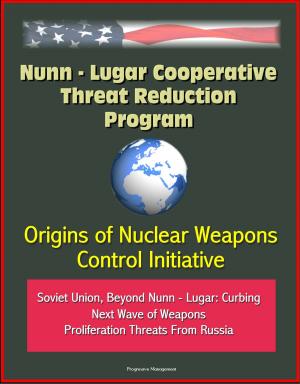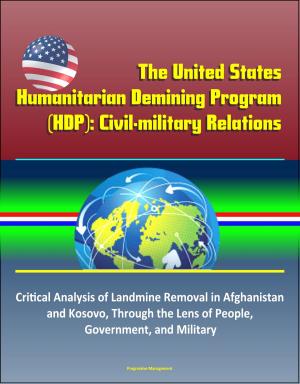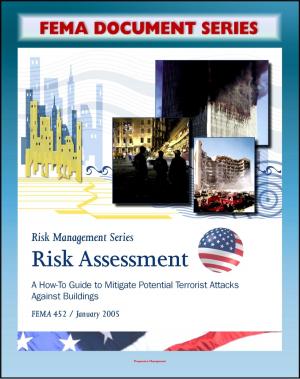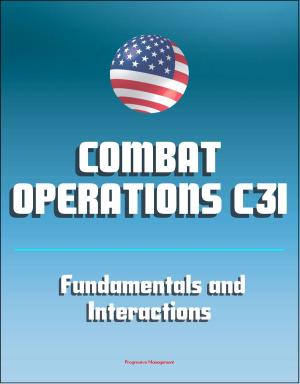National Defense Intelligence College Paper: A Muslim Archipelago: Islam and Politics in Southeast Asia - Islam in Malaysia, Thailand, Indonesia
Nonfiction, Social & Cultural Studies, Political Science| Author: | Progressive Management | ISBN: | 9781310288784 |
| Publisher: | Progressive Management | Publication: | December 13, 2013 |
| Imprint: | Smashwords Edition | Language: | English |
| Author: | Progressive Management |
| ISBN: | 9781310288784 |
| Publisher: | Progressive Management |
| Publication: | December 13, 2013 |
| Imprint: | Smashwords Edition |
| Language: | English |
This unique and informative paper was produced by the National Intelligence University / National Defense Intelligence College. With a knowledge of Islam unparalleled among his peers and an unquenchable thirst for determining how the goals of this religion might play out in areas far from the focus of most policymakers' current attention, the author has made the most of this opportunity to acquaint the Intelligence Community and a broader readership with a strategic appreciation of a region in the throes of reconciling secular and religious forces.
Preface * Chapter 1 - Islam in Southeast Asia: Historical Background * General Considerations * Historical Overview * Enter the Europeans * The Formation of Malaysia * The Formation of Indonesia * Chapter 2 - Islam in Malaysia * Establishment of Malay Hegemony * Growth of the Islamic Movement * Mahathir Goes Islamic * Impact of the Asian Financial Crisis * Militant Islam in Malaysia * Impact of the 9/11 Attacks in Malaysia * Outlook * Chapter 3 - Islam in Thailand * The Sultanate of Patani * Patani Under Thai Rule * Under the Thai Revolutionary Regime * The Pattani Insurgency * From Nationalism to Islam * Revival of the Insurgency * Outlook * Chapter 4 - Islam in Indonesia * Formation of the State Insurgency * The Islamic Alternative Fall of Sukarno * Ascendancy of the "New Order" * Survival of the Revival of Darul Islam * Formal Establishment of Jemaah Islamiyah * Fall of the Suharto Regime * Chapter 5 - Separatism: Threat to Indonesian Unity? * East Timor * Maluku and Laskar Jihad * Sulawesi and Jemaah Islamiyah * Papua * Aceh and GAM * Outlook * Chapter 6 - Islam in the Contemporary Philippines * The Philippines Under American Rule * The Moros Under Philippine Rule * The Moro Revolt * Split in the MNLF * The Post-Marcos Era * Emergence of Abu Sayyaf * Ramos and the Moro Problem * The Different Approach of Joseph Estrada * Arroyo Restores the Ramos Policy * Outlook * Chapter 7 - Islam and Politics in Southeast Asia * The First Islamic State * Spread of Islam to Southeast Asia
Southeast Asia continues to beckon policymakers and scholars alike to revisit its history in spite of the tomes of appraisals already written, deconstructive or otherwise. Because of a significant presence of Muslims in the region, and particularly in the wake of 9/11, it invariably attracts the attention of foreign powers drawn by the specter of terrorism and focused on rooting out radical Islamist groups said to be working with al-Qa'eda.
Dr. Max Gross has written an impressive account of the role of Islam in the politics of Southeast Asia, anchored by a strong historical perspective and a comprehensive treatment of current affairs. The result is very much a post-9/11 book. The origins of Jemaah Islamiyah and its connections with al-Qa'eda are carefully detailed. Yet, unlike much of the post-9/11 analysis of the Muslim world, Dr. Gross's research has been successful in placing the phenomenon of terrorism within a larger perspective. While recognizing that al-Qa'eda's influence on regional terror networks remains unclear, it behooves us to be reminded that, regardless of the nature and extent of the linkages, to dismiss terrorism as a serious threat to security would be naive to the point of recklessness.
This unique and informative paper was produced by the National Intelligence University / National Defense Intelligence College. With a knowledge of Islam unparalleled among his peers and an unquenchable thirst for determining how the goals of this religion might play out in areas far from the focus of most policymakers' current attention, the author has made the most of this opportunity to acquaint the Intelligence Community and a broader readership with a strategic appreciation of a region in the throes of reconciling secular and religious forces.
Preface * Chapter 1 - Islam in Southeast Asia: Historical Background * General Considerations * Historical Overview * Enter the Europeans * The Formation of Malaysia * The Formation of Indonesia * Chapter 2 - Islam in Malaysia * Establishment of Malay Hegemony * Growth of the Islamic Movement * Mahathir Goes Islamic * Impact of the Asian Financial Crisis * Militant Islam in Malaysia * Impact of the 9/11 Attacks in Malaysia * Outlook * Chapter 3 - Islam in Thailand * The Sultanate of Patani * Patani Under Thai Rule * Under the Thai Revolutionary Regime * The Pattani Insurgency * From Nationalism to Islam * Revival of the Insurgency * Outlook * Chapter 4 - Islam in Indonesia * Formation of the State Insurgency * The Islamic Alternative Fall of Sukarno * Ascendancy of the "New Order" * Survival of the Revival of Darul Islam * Formal Establishment of Jemaah Islamiyah * Fall of the Suharto Regime * Chapter 5 - Separatism: Threat to Indonesian Unity? * East Timor * Maluku and Laskar Jihad * Sulawesi and Jemaah Islamiyah * Papua * Aceh and GAM * Outlook * Chapter 6 - Islam in the Contemporary Philippines * The Philippines Under American Rule * The Moros Under Philippine Rule * The Moro Revolt * Split in the MNLF * The Post-Marcos Era * Emergence of Abu Sayyaf * Ramos and the Moro Problem * The Different Approach of Joseph Estrada * Arroyo Restores the Ramos Policy * Outlook * Chapter 7 - Islam and Politics in Southeast Asia * The First Islamic State * Spread of Islam to Southeast Asia
Southeast Asia continues to beckon policymakers and scholars alike to revisit its history in spite of the tomes of appraisals already written, deconstructive or otherwise. Because of a significant presence of Muslims in the region, and particularly in the wake of 9/11, it invariably attracts the attention of foreign powers drawn by the specter of terrorism and focused on rooting out radical Islamist groups said to be working with al-Qa'eda.
Dr. Max Gross has written an impressive account of the role of Islam in the politics of Southeast Asia, anchored by a strong historical perspective and a comprehensive treatment of current affairs. The result is very much a post-9/11 book. The origins of Jemaah Islamiyah and its connections with al-Qa'eda are carefully detailed. Yet, unlike much of the post-9/11 analysis of the Muslim world, Dr. Gross's research has been successful in placing the phenomenon of terrorism within a larger perspective. While recognizing that al-Qa'eda's influence on regional terror networks remains unclear, it behooves us to be reminded that, regardless of the nature and extent of the linkages, to dismiss terrorism as a serious threat to security would be naive to the point of recklessness.
